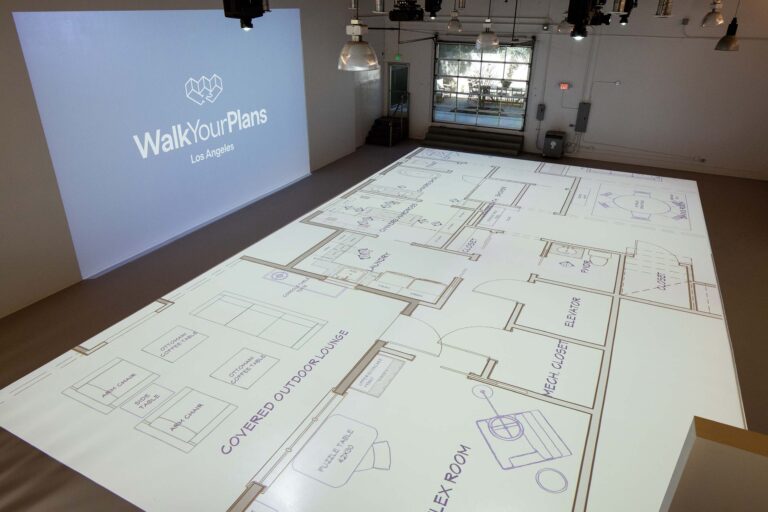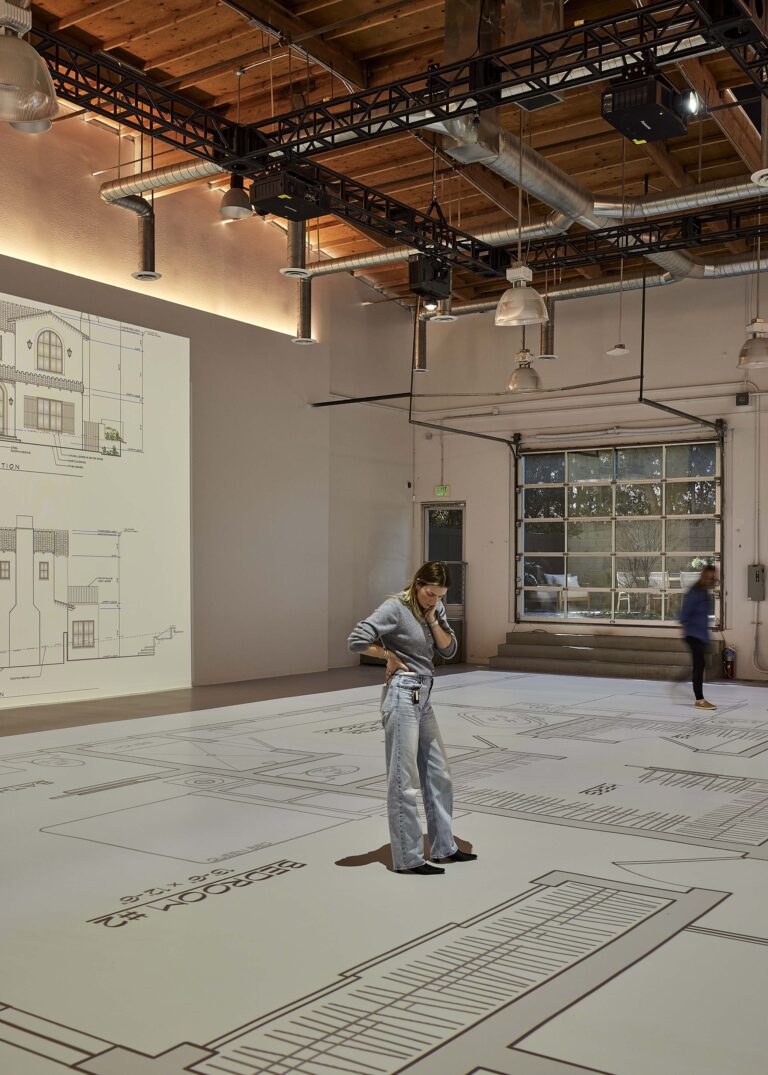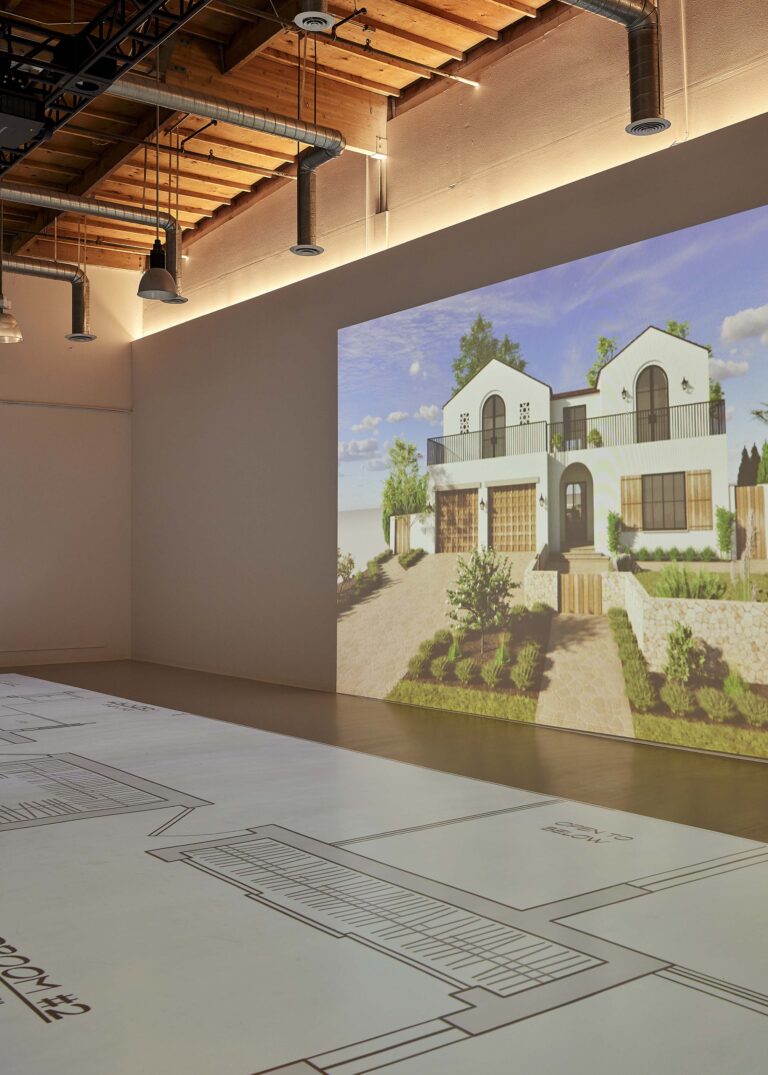Table of Contents
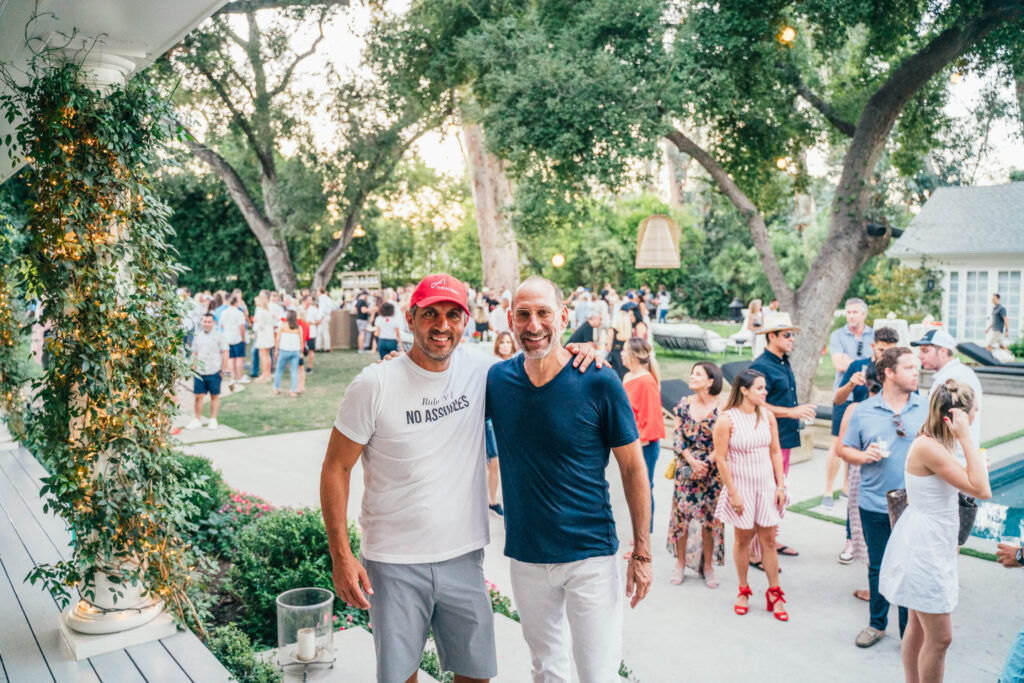
In this Episode
2020 has been a rollercoaster in so many ways, as Los Angeles goes through the COVID-19 Quarantine and Lockdown, the real estate industry like everyone has had to adapt. How do you buy and sell real estate during a lockdown? Billy Rose tells us what he’s been seeing on the ground.
Billy Rose has represented some of the most famous names in Hollywood, both as a developer and agent, and continues to lead the steady and measured expansion at The Agency with Co-Founder Mauricio Umansky. We know you’ll enjoy Billy Rose’s story about entering the real estate industry, quickly becoming one of Los Angeles’ leading Realtors and his perspective in these historic times. Our first remote podcast!
Top Quotes
“Because of the unique multidisciplinary skill set I had developed as a lawyer, as a talent agent, as a designer, as a developer, I found pretty quickly that I was able to understand issues and communicate resolutions for clients in a way that most, anybody else wasn’t able.”
Tweet
“When you look at some of these people who have now demonstrated or been able to confirm in their mind that they’re able to work from home and therefore can work anywhere, then what’s keeping them in these major metropolitan cities where maybe they’re not getting the benefits that they thought they were? And I think there’s going to be a lot of movement, particularly to the West. Particularly in LA.”
Tweet
“I take over listings often and I may have a new listing and the seller will say, ‘you’ve only got 18 pictures. The other one’s got 53, we got to show what we’re selling here.’ And I’m like, yes, to a degree. You got to show just enough to get somebody interested to come.”
Tweet
“What’s been really rewarding and interesting to see is that you’re only as strong as your weakest link. It’s one thing to be able to say, rather than ‘He sold the Playboy Mansion’ or ‘He sold a Case Study 20.’ It’s another thing to say, ‘We sold it.’ And our ego here is checked at the door and we’re all part of that same team.”
Tweet
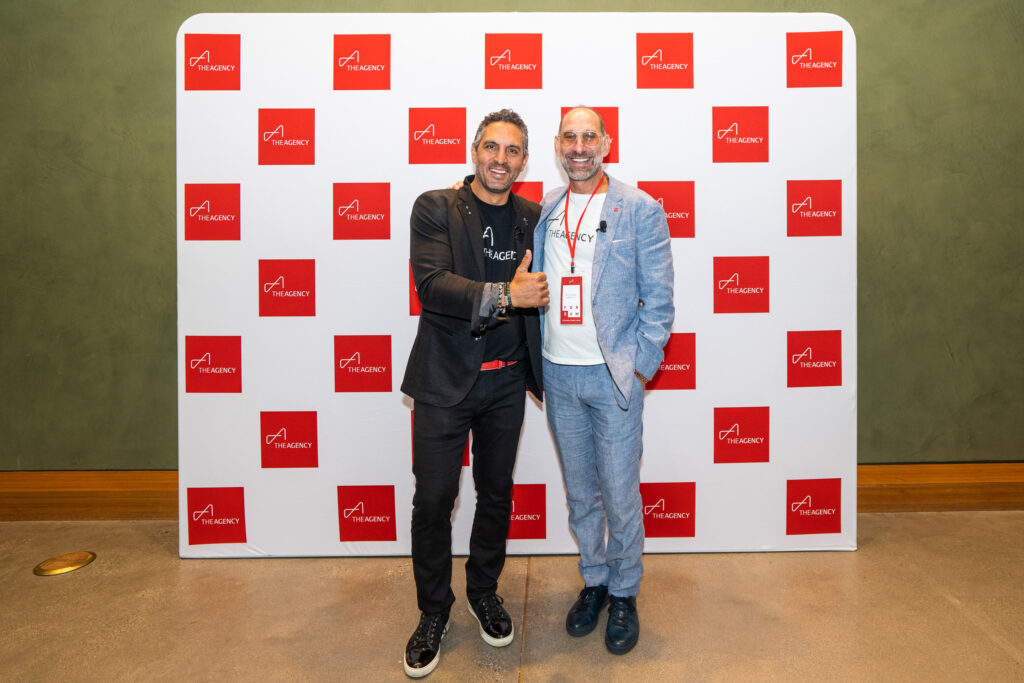
Episode Resources
Follow Billy Rose
Follow along with Billy Rose and The Agency: https://www.theagencyre.com/agent/billy-rose
Full Episode Transcript
Billy Rose: [00:00:00] I really just had got my license merely to save commissions on my, all my deals, but because of the unique multidisciplinary skill set I had developed as a lawyer, as a talent agent, as a designer, as a developer, I found pretty quickly that I was able to understand the issues and communicate resolutions for clients in a way that most, anybody else wasn’t able. And, you know, my first year was a big year and I was, you know, I just kept going from there while at the same time I’m specking homes.
Warren Dow: [00:00:51] Welcome to DIGS Influencer Podcast, the Titans of Real Estate. The show that provides direct access to the real estate industry’s [00:01:00] top movers and shakers is they share invaluable insight on how to best navigate and succeed in any market. I’m your host, Warren Dow, founder and CEO of MP3 media, and publisher of digs magazine.
Our next guest is a rare and distinguished breed in the real estate industry, who prior to becoming a top 10 realtor in the U S was entrenched in the Hollywood scene. First as an entertainment lawyer, then as a motion picture agent at United talent agency, then as a luxury home developer, that many Ellis celebrities still call home today and today as founder president of the agencies and honored to welcome to the show, Billy Rose.
Billy Rose: [00:01:49] Thanks Warren. I felt like an endangered species bird or something at the beginning of
Warren Dow: [00:01:54] all those, all those prior accolades and, and career, uh, you know, uh, [00:02:00] categories, right?
Billy Rose: [00:02:00] Yeah. Yeah. I should have like little, you know, initials and, you know, acronyms at the end of my name, but I don’t that’s right. I don’t really have one.
Warren Dow: [00:02:09] So you’re from LA, let’s go back to the beginning, growing up. What was your childhood like?
Billy Rose: [00:02:16] Um, I had a great childhood, actually. I had a younger brother. Um, we grew up in the Valley. I, um, I went to North Hollywood, high, lived off of, uh, Laurel Canyon and, uh, Moore park, uh, rode my bike to school, you know, uh, Colfax elementary, uh, Walter Reed, you you’re high in North Harford high when, you know, I’m an LA born and bred guy.
Um, I went to UCLA. For undergrad. Uh, I was a nightclub promoter. I booked fans. I was a DJ. Um, and I really kind of, you know, I was in the nightlife scene, hanging out with a lot of people going surfing during the days and playing a lot of poker at night. And, um, then I got all serious and I went to law school at night, [00:03:00] stayed in LA and went to USC.
Warren Dow: [00:03:02] I was going to get into that. Don’t worry. Um, But what about like, what did your parents do for work?
Billy Rose: [00:03:08] My mom, uh, has been a pro uh, a working artist to like oils and watercolors since she was 16. My dad owned a printing company, um, uh, printed brochures and manuals and advertising. Um, we had actually grown up.
I grew up until about third grade in Tarzana, and then we made the move. Um, To Studio City I’m in my third grade, I think it was my dad’s work was at Hollywood.
Warren Dow: [00:03:40] Interesting. I have a commercial printing career, um, you know, moment in time as well.
Billy Rose: [00:03:47] Yeah. Yeah. We were just a, you know, middle class family, you know, you know, had a nice little ranch house, um, with pool and you know, my brother and I played a ton of sports.
Warren Dow: [00:03:57] Awesome. What kind of sports? Like what, what was [00:04:00] your go to?
Billy Rose: [00:04:00] Well, I was a, I was like a top baseball player. Um, but I could, even though I was like one of the, you know, initial picks every year, I never was on a winning team, so I decided I was going to take up a sport in, uh, in ninth grade I took up tennis and, um, by 10th grade I was a ranked, um, junior in Southern California in tennis.
And, uh, you know, play tennis all through high school and then got, uh, consumed in recreational, uh, marijuana at the time. And so, uh, not much sentence from it
Warren Dow: [00:04:39] then that took over that that’s leads me into my next question. What kind of trouble did you get in into when you were a kid? And so that was probably a good start, right?
Billy Rose: [00:04:48] Yeah. Um, you know, not a ton of trouble, I think not cause I wasn’t wreaking trouble, but mostly cause my brother would be the one who would get busted or caught. Um, I think I was [00:05:00] better just to vaping treble, but I, you know, I was in the nightclub world, you know, for. Probably from like 18 to 23 or so. And, you know, we were out late and, you know, keyboarding and having fun and you know, unfortunately, no, no bad accidents.
Warren Dow: [00:05:17] Yeah. So did we, like early on, even before you started your nightclub stuff, like. Did you have any like, Hey, I want to be this when I grow up, like, did, were you thinking in those terms at all? Or was it just all, Hey, I’m young. I’m just going to let it, let it go. Like whatever happened, you know, kind of a thing.
Billy Rose: [00:05:34] Um, no, I was, I was fully guided, you know, uh, good Jewish parents, you know, Jewish mother. And my mom kept telling me, you know, you need to be a doctor or a lawyer. And, um, I get queasy at the sight of blood. So my only option really was to become a lawyer. Um, once I realized that wasn’t going to be a pro tennis player and, um, you know, so I was always gonna go to law school.
Um, I was taking, you know, poly-sci [00:06:00] and sort of pre law classes in college, knowing I was going to go to law school. Uh, I interned for a law firm in college. Um, and I wasn’t sure what kind of law I wanted to do, but, um, having grown up in LA and having a lot of friends who were celebrities and such and, and, and, and athletes, um, it just seemed the natural way to go was to be, um, an entertainment, sports lawyer.
Um, so that, that was that pathway for me.
Warren Dow: [00:06:29] And how long did that last.
Billy Rose: [00:06:31] Um, well that I did for 10 years, actually. I, um, um, Got it, number one of my class, but hook or by crook. And, um, I was able to get into a top firm and have real clients really love doing that. Um, at one point I broke away, started a firm, um, and then four years into that realized I didn’t have the right partners to really get to that next echelon level.
[00:07:00] Um, where I wanted to be. Um, and I started to try to find other partners to start a new firm. I couldn’t really get that right group of people. Um, and along the way, I got recruited to become a talent agent at UTA, um, which, um, seemed to like a good idea at the time. And, you know, in retrospect, I think I didn’t really understand what a agent did.And, um, you know, I worked at, uh, where I started my law career basically was at a firm called gang tire rim or Brown. We’re kind of known as being the lawyers for lawyers. If you were a topic, Zack, and you were a lawyer, for example, you would want them to represent you. And you know, the motto of the firm, which dates back to the twenties.
Was that not only would you not. Committed an impropriety, you would not even commit the appearance of impropriety. And, um, you know, so it was a little counterintuitive for me to understand going from that, you know, don’t even get close to the line to being rewarded for lying, cheating and stealing one, being a townie.
Warren Dow: [00:07:59] Oh, that’s hilarious. [00:08:00] So
Billy Rose: [00:08:01] I had difficulty reconciling those two.
Warren Dow: [00:08:03] Those are yeah, definitely. Um, in going in opposing directions, right?
Billy Rose: [00:08:08] Yeah.
Warren Dow: [00:08:09] So how long was the talent gig? Um, how many years did you do that?
Billy Rose: [00:08:14] I did that for five years.
Warren Dow: [00:08:15] Okay. Five years. So I’m just trying to get your timeline. So 10 years in a term entertainment lawyer, five years.
So you’ve been entrenched in entertainment. Yeah. You got a ton of connections. I’m sure Hollywood’s, you know, pretty insular, right? Like. Once, you know, this person, you get to know this person and it’s kind of like the network lights up pretty quick. Right?
Billy Rose: [00:08:34] Well, it’s a good, I mean, you know, particularly as a talent agent where, you know, you get paid for introducing to people who already know each other, Know, it’s your currency, our relationships,
Warren Dow: [00:08:46] right.
Truly a relationship business, as they say,
Billy Rose: [00:08:50] you know, and you know that we’ll, I’m sure we’ll get to this later, but you know, that certainly was a huge foundation for my success today
Warren Dow: [00:08:58] for sure. And you, and you’re [00:09:00] an interesting. When I say this doing distinguished in the introduction, I really mean that because I mean, your pedigree is like, you’ve, you’ve done some very interesting and difficult, um, and complex things to do, build your foundation of knowledge, um, which is really impressive, really impressive.
Um, So I, in the early days, it’s a true, did you work with Crosby DOE and Mosler, and those like in the, is that your first real estate cake? No,
Billy Rose: [00:09:30] I actually started at Westside Estate Agency. What happened at WVU? What happened actually was that, um, um, I had, uh, bought a house that I had, um, remodeled the Carthay circle.
I had a girlfriend who had just graduated from a design school when I just finished up with the remodel. And, um, so we kind of did the interiors together and, um, the [00:10:00] house got, um, when it was time to sell it, you know, it got published and I made a little bit of money and, um, you know, my girlfriend at the time, you know, She didn’t have experience, but she was immensely talented and beautiful and fun to be around.
And, you know, she went on to become, you know, one of like architectural digest, top interior design, top designers in the world. Um, and, um, I learned a lot about architecture and design through her. I think it was something in which I already had, had a lot of interest. Um, and when that house sold, I think bought another house up in the burn streets, um, which was this like 7,000 square foot, like Del taco meats.
Um, Uh, you know, terrible, you know, stucco best Western and, um, three stories, uh, but had great views. It [00:11:00] had a big, big pool and I had a tennis court and it was, you know, lower. Bird streets. Um, and at the time, you know, I had bought it for $725,000, a hundred dollars a square foot. And, um, I think I had a gargantuan remodel of about a hundred thousand dollars and, um, I blew through that and spent two.
And, um, I. Had always been trying to get a woman across my bow, my boundary line to sell to me. She had this big lot. And, um, I kept saying, if you ever consider selling, you know, I’d love to buy your house. And one day she called me and she said, you know, I’m ready to sell. And so I had to, in order to buy that house, I had to sell.
The bachelor pad one and I, you know, so sold it for the unfathomable amount of money at four point $2 million, you know, $600 a square. Um, and at the time it was like, you know, the Mac, daddy [00:12:00] gossip pad, uh, you know, the burgeoning bird streets, you know, it was like the, you know, the Marcus Pearson, the Minecraft house at the time, it was like, Um, you know, Oh my God, you know, how could this, you know?
And, um, I bought this other house and when I sold that one for 4.2, I was at UTA. I hated being a channel agent. And I said, you know, I think I’ve got a back for this. I’ve already bought my next house. I’m going to be the male version of my ex-girlfriend. I’m going to be a developer designer to the stars.
And, um, I went and I got my, my broker’s license at the time. It was easier to get one. Um, cause I was a lawyer and so I didn’t have to sit for twos tests. I just had to pass with a higher percentage on that first test. And um, I called my friend Lauren Judd. Uh, who was an agent at WEA at the time. And I said, you know, I’ve got my broker’s license, you know, I guess I need to hang it somewhere.
What do I do? And he said, well, why don’t you [00:13:00] come work at WEA? I went, okay. Sure. Um, so that was, I really just, um, had got my license merely to save commissions on my home ideals. Um, But because of the unique multidisciplinary skill set I had developed as a lawyer, as a talent agent, as a designer, as a developer, I found pretty quickly that I was able to understand issues and communicate resolutions for clients in a way that most, anybody else wasn’t able.
And, um, though I had never really anticipated, representing other buyers or sellers, um, people in the entertainment industry and I, you know, Fairly large network, um, were approaching me and saying, Hey, I know you’re out there looking for things where you are getting inspiration a lot. If you ever see something, you know, that meets X, Y, and Z, um, you know, you can represent me.
And, you know, my first year was a big year and I was, you know, I just kept going from there while at the same [00:14:00] time, um, spec-ing homes.
Warren Dow: [00:14:02] That’s awesome. And how many, so how many homes did you, or have you, do you still build homes? No homes,
Billy Rose: [00:14:08] you know, I kind of godfather projects now. I’d, I’d love to one day maybe get back into it.
And you know, what I’d really love to do is something like, you know, little boutique coats style restaurants, you know, maybe some residences or what have you. Um, but I, I. I still love, you know, helping people with, um, getting their, their, um, floor plan flow working and, you know, understanding where the real value is because you know, this is not just something which you’re going to enjoy, but it’s something which you’re, you know, it’s an investment for you.
So, you know, don’t build that two bedroom house, you know, we can make this other room, functionally work, its bedroom as well. You know, you’ll have more value as three bedroom house, or, you know, if you can get that long driveway, let’s do that. The approach is super valuable. You know, whatever that thinking might be so that when they go to sell it, they’re going to maximize their [00:15:00] returns.
Warren Dow: [00:15:01] Yeah, that’s key. That’s that’s great, great perspective as a developer. Um, what, what was the favorite, your favorite home that you built? Do you have a favorite?
Billy Rose: [00:15:08] I do. Um, actually it’s not my favorite in terms of economics. Um, but. It’s a house that people today still say to me, it’s probably the best house they’ve ever seen or their favorite house.
Um, it’s a house up in a little gated community called Stone Ridge Estates. Um, and I bought it in may of Oh way. I’m not obviously very prescient at the time and, um, yeah. Performance. Yeah. The time for me to be able to sell it on the way out at $20 million. And, um, it’s spectacular house on an acre and a half, you know, 12,000 square foot house, um, really high ceilings and just a unique house that I remodeled and enlarged and, and. I think made it sing. And then of course, you know, there was the Lehman [00:16:00] crash and, you know, things, prices at basically declined to about 30% off the market. At that point, I ended up selling it for 14, which is, you know, 30% right off my proforma, $20 mill, you know, I lost a couple hundred grand, um, learned a lot, uh, had launched the agency right at the same time that I was taking the spanking on that one.
Um, but. You know, it’s a, it’s a great house. It’s what I, I still, I went back to see it, not that long ago. And it, it holds up today. What
Warren Dow: [00:16:29] kind of architectural style are you into? Do you have a favorite? Well,
Billy Rose: [00:16:32] um, you know, I, I, I, I appreciate contemporary lifestyle. I like open area. I like real lots of light. I mean, I really respond to light.
I really respond to land. I prefer land to views personally. Um, You know, I’ve, I’ve done houses, you know, I’ve done craftsman, I’ve done contemporary, I’ve done Spanish, I’ve done traditional. Um, to me, it’s not [00:17:00] as much about what the exterior shell is as much as how you live within it. Um, but the things that I gravitate towards today, and I think one of the reasons why I get a lot of clients is because I like kind of unique properties and can appreciate, um, You know how it can make you feel and, and good design and architecture.
Warren Dow: [00:17:21] Do you have a favorite all time architect from the past, like a like Richard Neutra or Frank Lloyd Wright? Who would you pick?
Billy Rose: [00:17:30] our choice? Uh, you know, I think I, I love, I love Neutra and I, I have a great Neutra listing right now and I’ve sold his Case Study house as well. Um, but you know, Neutra is a disciple of Wright and I think I have to go with Wright. Only because, um, the diversity of his portfolio is mind boggling, you know? And when you go and you figure that he did, you know, The Guggenheim, um, you know, you know, some of his more modern [00:18:00] stuff is kinda crazy, you know, when you go back, you know, from his Usonian and falling water type housing.
So, you know, and then Barnes doll, and I mean, the, his, his, his legacy is his, I mean, he’s probably the greatest architect of all time, but I think I would pick Lautner as my. That’s my favorite. I mean, you know, he’s so, and then this is, you know, I’m looking at sort of historical figures, cause there was some amazing ones, you know, more current.
Um, but I think, you know, his mind was so outside of the box, um, and some of the things he’s done are so, you know, nobody had ever seen anything like that. You know, whether you’re looking at the chemist sphere, you know, or you’re looking at silver top or you’re, you know, you think about the Sheats Goldstein house and how he incorporated and Air curtain, no screens, no doors. And the air was designed to keep the birds and the pets out. That’s crazy. You know, that’s so incredible mind,
Warren Dow: [00:18:54] you know, I, I, I love architecture. That’s kind of why it got me into being a publisher and doing what I [00:19:00] do into this space. I’m learning along the way, but like, to me, and I’m a, I’m a musician myself.
Um, and to me, I always looked at architecture like music and like the old guys were like, you know, the early British invasion has got like the Stones and the Kinks and the Beatles, like the guys that were just rewriting history. Like what, what is this stuff? You know? And then Elvis, and then like, these guys broke so much ground, um, and their head space was so far above, in varied than the norm at the time.
Right? Yeah. It’s mind blowing kind of
Billy Rose: [00:19:35] you, I’ve got, you know, it’s funny cause you remind me of the parallels with architecture and music and um, I have this listing of the standard. Frankie it’s maybe my favorite Neutra actually it’s in Santa Monica and, um, Neutra did this, uh, original 3000 square foot. [00:20:00] Uh, and, um, the owner commissioned, um, uh, Johnston Marklee to add an ADU Thousand square foot structure. And I look at the original stuff, Frankie main house as the, um, the Motown classic. And I look at the Johnston Marklee as this like remix of what that was because they really were referential to it. And I think it’s one of the few cases where you see this, you know, extraordinary mid century modern, you know, jewel box accompanied by another piece of architecture and where they actually harmonize and synergize.
Warren Dow: [00:20:41] No, it’s so cool. I was blown away. We had the opportunity to go interview Ray Kappe. Yeah. Rest in peace. Um, and at his house and we got to shoot it and it was a feature story and all that. And we spent an afternoon with him and what a, never forget that day. And, um, And that home just was [00:21:00] blew me away. Have you been inside that house or does he use I’m sure you’ve
Billy Rose: [00:21:02] seen that house. I’ve seen numerous of his works and I’ve sold some of his works and I’ve met him and he’s, I mean, I, and I, his house, maybe it, my favorite of all his works.
Warren Dow: [00:21:12] Yeah, for sure. It’s like it’s so it’s, it’s wild. And the, the dimensions on the floors, like kind of floating, like you don’t it’s it’s. It’s amazing.
Billy Rose: [00:21:22] You really feel like you’re within the trees you’re within nature without that was a sublime house.
Warren Dow: [00:21:27] Yeah, it was amazing. Amazing, amazing. So we can’t have a discussion today, you know, at least, you know, real estate without talking about the COVID-19. Um, pandemic and how it’s affecting the market.
Um, what do you see? I mean, the great irony and, you know, with this is a tragedy beyond words, right? What’s happening in the world today, but the, the real estate industry and the stock market, and like life was as grand as life could have been like January – February 2020, [00:22:00] like everything was booming. And then like, boom, like.
What do you, what’s your take on sort of where we at right now and, and this whole thing.
Billy Rose: [00:22:08] I mean, it’s, yeah. I mean, we were certainly chugging along and, you know, things only looked rosy. Um, everybody kept expecting the recession, you know, we’re beyond seven years, you know, it’s 10, it’s 11, you know, when’s it gonna, you know, when’s the shoe gonna drop.
And as you read. You know, financial institutional pundits projections’ you know, not going to be this year. We’re seeing another unit 12 to 18 months before, you know, and then this, of course. The curse. I think that the greatest difficulty today is understanding the ripple effects. Um, you know, I think that, I think that as a real estate agent, um, you know, we’re lucky, um, they’re like undertakers, there will always be new clients and, um, You know, there, [00:23:00] there are certain life events that cause the purchase in the sale of homes, you know, death for marriage, uh, kids, you know, going to school about to go to school kids, you know, going away to school downsides.
And there’s always going to be people who need to buy. And so it’s the discretionary market that I think is going to be most effective. Um, you know, what we’re seeing right now is, you know, homes in the, you know, under $1.4-1.5M range, they’re flying off the shelf and there’s bidding Wars. There’s a lot of activity.
There’s a lot of desire. There’s a lot of demands. Um, and it kinda makes sense because you know, they’re walking in. Uh, their loans at great interest rates. And these are houses that people need to buy. You know, they’re, they’re, they’re going for whatever their reasons are, but, you know, you get to the, you know, [00:24:00] 20,000 square foot or the 15,000 square foot of the 50,000 square foot, you know, bachelor pad up to the birds or, or whatever.
And not everybody needs those, you know, and there’s a lot of them we
Warren Dow: [00:24:11] built. Yeah. That’s what we want to have. Not necessarily need to have. Right.
Billy Rose: [00:24:15] Right. And I just think that, you know, when you look at, um, all of the issues that are accompanying our market at the moment, we’ve got trillions of dollars of wealth lost in the financial market. So people are feeling less, less wealthy. Um, you’ve got. Um, a number of industries that are going to be affected on levels that we haven’t even yet begun to understand, you know, particularly industries that are within, you know, this sub market here in LA. Uh, you know, we, we have a tremendous variety of live entertainment, whether it’s music or live theater.
Um, sports, you’ve got [00:25:00] conferences, um, you know, you’ve got hospitality and hotels or cruise ships or planes or wherever. There are aggregations of people where there’s industries that people, um, coming together, those are going to be affected. You know, dramatically initially. Um, and when those will come back, it’s going to be hard to know, but that’s gonna make a lot of owners of companies feel know less secure or less wealthy.
It’s gonna, it’s gonna make a lot of employees feel less secure. They’re going to end up with, um, you know, either they’re gonna lose their job. If they haven’t already, they may not come back or they end up with less hours. Um, and, um, and then you look at, um, restaurants. So, um, you know, that’s what I’m being told.
I’ve been understood as being involved in a number of restaurants. And I talked to the people that run it. They talk about how to reduce the occupancy, um, to like 15%. And the [00:26:00] margins of restaurants are very small. So, you know, how do you make those businesses work? If you have to, if you’re going to be getting far less revenues, because you have far less patrons, you then got to get the landlords to go along with this whole scheme.
And the only way that works is if they want to go on, you know, like a percentage, uh, rent, uh, and then, you know, you have the ripple effects from that lesser, you know, demand or lesser ability to serve number. Patrons, you know, if you were less or less between more or less, what was being ordered, people driving those things less, you know, linens, um, you know, the farms that distributors the…
Uh, you know, it, we just don’t even know, you know, where it, how that ripples out and, you know, you you’re already start to see how it’s harder to qualify for a loan. If you’re self employed [00:27:00] buyer. I mean, it’s, you’re, the down payment is so high, it becomes prohibitively expensive or more difficult. Um, which by design, you know, there’s going to be a lower level of supply. I mean, sorry, a lower level of demand because now fewer people can afford these higher price product, um, which is gonna mean that there’ll be more product available. And, um, you know, it’s all about supply and demand and I’m, and I’m concerned that there’s also gonna be a number of developers who, um, you know, jumped into this gold rush of specs, you know, particularly during higher demand…
And you know, now things aren’t. You know, they’re going to be up to holding for a lot. They’re going to have to hold for a lot longer, or they’re going to have to let it go for a smaller price, or they’re not going to have the deep pockets to be able to sustain. And I think there’s going to be some new, you know, uh, downward [00:28:00] leaning comps that are gonna affect the market.
So I think there’s a great likelihood, particularly at the higher end that we’re going to see discounted pricing just because there’s going to be less demand. Um, there’s, you know, we ha we know there was already a great amount of supply coming. Um, and I think, you know, particularly at that higher end too, you have a lot of buyers who they feel like they’re jumping into hole. And is the hole 5 feet deep or is it 55 feet deep? And, you know, we, when are we going to get to know? I mean, you know, now we’re hearing of course that, um, stay at home in LA, you know, could be expanded to August. Uh, when does it stop? You know, is there going to be another flare up? I think we’re in the most volatile time of, you know, the current era, you know, post depression era that we’ve ever seen.
Yeah. And I think that buyers in particular feel like they’re jumping into a hole. They don’t know if there’s a net underneath. [00:29:00] They don’t know if it’s going to be five feet deep. It’s 55 feet deep. And, and as a result, you know, Markets, whether they’re financial or real estate, they don’t like, they don’t like uncertainty.
They don’t like volatility that like stability, the more things are going, you know, even if it’s just static. And I think it’s really difficult to understand right now. You know, what, what is going to be our future. And, you know, we’re still trying to figure out, I mean, there’s so many industries that are within our marketplace here and in LA, which are so prominent, you know, whether you’re talking about, um, live entertainment, you know, concerts, um, live theater.
Um, sporting events. You’ve got, you know, movie theaters, um, hotels, conferences that all bring people together in mass and those industries right now are pretty much on pause. [00:30:00] Um, and you know, that movie production, TV production, I mean, what they’re talking about doing as far as allowing those people to be working now, or like going into quarantine as a pod, as an entire production before they go on, on location or before they go in into production.
Um, you know, which means that basically if you’re some, one of the higher level. Uh, performers or, or providers like a director photographer or an actor, or what have you, you probably have to go into a quarantine a little longer than the 14 days, because if something comes up, they need to find a replacement for you.
Cause now they’re locked in because they’ve got all these people who are quarantining at the same time. Um, we, we, we can’t even begin to understand what the ripple effects of this is all going to be. And you know what, I’ve been looking at restaurants in particular because I’m an owner in a number of restaurants and I’m able to talk with a number of people on what, how they’re going to be dealing with this.
And, [00:31:00] you know, restaurants are not a high margin business to begin with. Uh, and I’m hearing that they’re going to meet to reduce their occupancy by about 50%. And you know, that doesn’t really work. The entire economic model has changed
Warren Dow: [00:31:15] and it doesn’t work.
Billy Rose: [00:31:16] Yeah. I mean, that’s a big component of that. Uh, and so you can’t continue on the same rent, which means you’ve got to basically work on a percentage rent probably.
Um, and then, you know, how do you rework. That situation on the landlord side with the lender
Warren Dow: [00:31:31] right
Billy Rose: [00:31:32] on and on the ripple effects are crazy. You’ve got the meat purveyor, the seafood purveyor, the drinks, you know, wine, beer, alcohol, soft drinks everybody’s providing. And yet they’re going to be providing less.
There’s going to be less hours. There’s going to be, you know, owners who aren’t feeling it’s profitable. They’re not going to be extending themselves as great. It’s just, we’re moving into a time where. People, you know, it’s gonna be hard to qualify for loans. It’s very [00:32:00] difficult to qualify for self-employment at the moment, you really have to come up with a, a large down payment for a lender to feel secure, which all of this means that there’s going to be less demand.
And when there’s less demand, you know, you typically get an offset with greater supply though. You’ve had a lot of sellers who are holding their, their properties off, but there’s going to be those sellers who are going to have to sell. It’s going to be a sell of necessity. And you know, whether that’s coming from these Cowboys, you know, who all jumped in for the gold rush on the spec market or somebody who just, you know, they’ve lost their job, they’ve lost their business and they’ve got no choice, but to sell their only asset, there’s going to be some properties that are going to be let go at, um, at a number that’s going to set up at comp and, you know, in the same way that when you’re in an appreciating market, you know, those new. Those new houses that are coming on the market.
They’re all standing on the shoulders of the prior sales. [00:33:00] These are going to be the ones that are dragging down the following sales. So, you know, that’s why I think there’s a, there’s a lot of stickiness in the market right now. There’s, you know, there’s not this momentum. I mean, again, at the lower end, you’re seeing buyers who, you know, they need to buy it.
And they they’re walking in these great, you know, unprecedented, low interest rates. So you know that market’s going to be robust and, you know, there’ll be a number of agents who will really kind of move into that market because that’s where the flow is at the moment. Um, but there’ll always be sales, you know, we’re like undertakers, there’s always another client,
Warren Dow: [00:33:35] you know what scares me and you talking about the trickle down, you know, the ripple trickle down effect.
Is it a commercial real estate, um, and the big box retailers, they were already downsizing and, and, you know, already feeling the effects of the, you know, Amazon, the new e-commerce economy before it got, you know, expedited and, and [00:34:00] amplified with the whole COVID thing. Um, and now just like we’re doing today, Billy we’re on zoom.
Otherwise, we’d be, I’d be in your office right now. We’d be doing this right. So like we’re, we’re teaching ourselves how to do business a different way across every industry. Um, and I talked to one of my really good friends who’s, uh, works for a huge, huge international company. They spend, you know, tens and tens and tens of millions of dollars on commercial leases.
Right? And they’ve had to stay, they’ve had to do the whole relearning and they’re like, we’re not, we’re not going back. Like. We’re looking at it now we’re going to be saving, you know, gazillion dollars on rent because we’ve figured out how to do it remote. Um, even with our customers, you know, we, we figured out we don’t need to fly to, you know, from, from Orange County to Boston for a meeting, we can just, we can just do it remotely and save the time and money, you know?
Billy Rose: [00:34:58] Yeah. I think that, um, the [00:35:00] world is going to change. Um, I think that the work at home. Has has, has gained a proof of concept. And I think, um, marketplaces like LA, um, you know, and a number of others, whether you know, where, where particularly when you’re looking at major metropolitan cities, um, and you want someone who has the amenities and the retail and the nightlife and whatever that, you know, you get from a major metropolitan city.
LA is uniquely situated in that, you know, we’re spread out we’re we have half the population of New York in double the square footage of land. And you know, we’re not a, we’re not a town, uh, like Chicago or New York or San Francisco where, you know, they’re vertical cities that are. Um, you know, built in towers where you get, you know, tens, if not hundreds of people, all within the same, you know, structure going up and down the elevators and the same, you know, lobbies and common areas.
[00:36:00] And, you know, we generally are a single family, um, marketplace where, you know, we’re not sharing anything. And then, you know, when we leave our. You know, personal garage, we get in our little, you know, germ-free bubble that transports us to, you know, our next destination. Um, we’re not getting in an Uber or a cab and we don’t know who was in it before.We’re not getting into, you know, a subway or other mass transit. And I think, you know, when you look at some of these people who have now demonstrated that they, or, or, or been able to confirm in their mind that they’re able to work from home, um, and therefore can work anywhere, then, you know, what’s keeping them in these major metropolitan cities where maybe they’re not getting the benefits that we thought they were.
And I think there’s going to be a lot of movement, you know, particularly to the West. Um, Particularly in LA.
Warren Dow: [00:36:53] Yeah. That’s a great point. Cause you don’t. Yeah. If you don’t need to be there. Um, and you know, this is a [00:37:00] tremendous alternative, I mean, single family with land, you know, and lifestyle combine, you know, so,
Billy Rose: [00:37:05] I mean, if you’ve got a shelter at home, you know, nice to have pool, nice to have some square footage, nice.
To be able to get out in the natural air. Yeah. Well, we had an outdoor movie night last night. It was fantastic.
Warren Dow: [00:37:17] Oh, that’s cool. Very cool. Well, the markets, we talked about how they were on fire before, you know, all the way up until the, you know, February of this year. And it seemed like, you know, even like the end of last year in the beginning of this year, LA was breaking new price records, almost weekly.
Um, I mean, th the mega mega homes, a hundred million dollar plus there was like a half a dozen sales, right?
Billy Rose: [00:37:42] Yeah.
Warren Dow: [00:37:44] And so when you still have these mega developments, like, you know, what’s the one up in one? The one, yeah, it’s the one I always screwed up. What’s the one, I’m the one
Billy Rose: [00:37:52] it’s like, it’s like, what’s what, what’s your company?
The agency know which one? The agency who’s on first.
[00:38:00] Warren Dow: [00:38:00] What are those guys? I mean, is it. Are those guys again to get like when, because that market was like you said, you know, it was standing on the shoulders of those comps, even those, those comps, like you can’t comp a Playboy mansion kind of thing. You can’t, that’s not that doesn’t live in the MLS in a CMA world.It’s a, it’s a whole nother, you know, expertise and, and thing. Um, but do you think on the same level. If those things sit or they’re just completely getting slaughtered, what’s gonna what’s that gonna do to the market? Like how much weight down is it gonna push?
Billy Rose: [00:38:38] Well, you know, uh, you know, we, we, we, we look at Reaganomics and the, you know, the trickle down theory and I think that applies equally.
So here, um, you know, the one, you know, um, He was originally looking to get, I think $300 million or,
[00:39:00] um, you know, look, many times I’ve been proven wrong that something can gain or achieve a number that seems unfathomable. But, you know, I think in today’s marketplace, that seems more difficult than ever I think Nile. Uh, the developer of that property, you know, is he’s got his work cut out for him. And I think he’s got, you know, more than just that property that he’s got on the market at the moment.And, um, You know, like my house, you know, that I brought on the market and Stoneridge, when I, you know, thought I was going to make, you know, life changing money, um, you know, life doesn’t always go as planned. And, you know, whether it’s those homes or another, they’re going to be comps that are going to affect, I think other markets.
And as you, you know, when we became a, a 2000 a square market, you know, that was like crazy. And then we got to 3000. And, um, I think, you know, they were [00:40:00] outliers to begin with, but I think we’re going to see fewer and fewer of those. And I think, you know, that the market’s going to calm down in that regard.
I think we’re going to see less of these sort of sellers believing that they, you know, their, their house should be pitched or hitched to the, to the outlier star. Um, you know what the market discount, if any, is going to be is, is really unknown. I know a lot of deals are getting done where. I have a deal right now in Brentwood Park. It’s a $7.5 million house and we’re basically getting pre-COVID money. Now. I think the reason for that is because it’s a unique. It’s a unique opportunity. And you know, if it’s something that’s fungible, if it’s one of these, you know, stuff, Oh, and glass boxes, you know, uh, around the Beverly Center, um, where there’s like another one sprouting each day, those become fungible.
And, you know, that’s again, a supply and demand issue, um, you know, houses that are. Um, you know, particularly he, uh, rooted in [00:41:00] history, um, with architecture, you know, whether it’s a Neutra or a Lautner or something else of an acclaimed, you know, provenance, those will probably retain their value better.
And I believe that, um, but you know, at the same time you can argue that the art world for example, is going to get. Pretty hard to yet. And, you know, um, the premium that great architecture gets from great architects is often because I look at them as like functional art. Um, and, um, you know, whether you’ll get that premium for art these days, or whether as much a premium we’re going to have to wait to see.
But you know, to me, if it’s, if it’s a unique property, um, that it’s hard to replace, particularly if you’re going to be there for any extended period of time. Um, you should be fine. I mean, you know, the market will recover. The question is how long is it gonna take.
Warren Dow: [00:41:53] And then maybe Billy it’ll have the opposite effect where you know the home now, since we’re literally we’re stay [00:42:00] at home, it’s taken on a new level of importance and meaning in our lives.
Right. Um, and maybe it’ll have the reverse effect where people go, Hey, life’s too short, man. Like, I’m not getting any younger in this COVID shits out there. Like I’m, I’m gonna, I’m going for it. I don’t need it, but I damn well want it right now. I want the pool. I want the view. I want the, you know,
Billy Rose: [00:42:21] yeah. I, listen, I think, you know, we’re going to see less travel, obviously.
I mean, you know, Malibu rentals right now, or like the hottest commodity, um, you know, it’s, it’s staycation, it’s stay at home, you know, really enjoying your space. I think we’re going to see, you know, a change in. You know, maybe what is the, um, what are the, um, the amenities that go to amenities and houses? I, you know, I foresee like a, his and hers, like offices with green screens and, you know, uh, mic’ed rooms that you can do zoom calls from, I think. Um, you know, what, what became sort of the [00:43:00] ubiquitous theater or media room? I think those are gonna, you know, really become more and more ubiquitous because I think, I think movie theaters are going to go out of business to a large degree, and I think we’re going to see the release of movies undertaken in a.
In a different way. Um, and it probably be coming to your, you know, your home media room and, you know, maybe you’ll have your 10 friends over and everyone will pony up, you know, $10 or whatever that’ll be. But, um, I think that that’s going to change a lot and I think. Um, we may, you know, there may be a re a re looking at, um, the open floor, you know, the open floor plan concept, because I think, you know, as we’re all contained in our homes with our kids and our extended families and whoever else that, um, you know, we’re all trying to escape each other and maybe the open floor plan doesn’t.
Allow you that, so, you know, maybe it becomes convertible rooms where, you know, it’s an open floor plan, but you can close it off if you want.
Warren Dow: [00:43:59] Yeah. [00:44:00] Good point. So, you know, this whole new normal talk of the new normal, um, you know, with this virtual open houses and broker’s opens and what have you, and. You know, seller’s concerned the people coming through their house and obviously all that stuff.
Like, do you think relative to the whole ibuyer model that was starting to gain a little traction? You know, obviously not in Beverly Hills and you know, Malibu it’s it’s in the homogenized, you know, Phoenix, you know, cookie cutter, you know, um, plan a, B, C, D kind of thing. But. Um, but do you think that will spark something new in the ibuyer?
Like if they get the technology right. If they get the 3D blah, blah, blah, and the, the, like, do you think we’ll ever see a time and place where people are actually writing checks for 10 million bucks and never walking in the property? Or like,
Billy Rose: [00:44:54] I think that the, um, That the current, [00:45:00] the current tours, virtual tours, aren’t enough to really enable somebody outside.
As you say, you know, the, A plan or B plan, you know, divided communities or the buildings where, you know, it’s the, the, um, The stack and the beast deck, um, that housing is just too unique, particularly in LA where, you know, you might have a $2 million house next to a $30 million house next to a $10 million house.
Yeah. And it all, everyone is different in its own way in its own design, its own architecture. And how recently it’s built the ceiling heights. The way the light comes in the view, the way the air circulates, the noise. Um, you know, I look at like, you know, if you were a buyer and you know, you were, you, you know, you heard that La Mesa was the greatest street in LA and you know, you got a $20 million sale across the street, and you’re looking at this one and it’s $5 million and it looks great.
And then you realize that the one you bought backs up to [00:46:00] San Vicente and the one across the street overlooks, you know, Revere a golf course. So I think that, um, You know, there’s, it’s very difficult for someone to, you know, lay out, lay it out a bunch of money to purchase a luxury product and, you know, luxury may be a million and a half.
Um, and, uh, without actually being inside of it unless, you’re getting a smoking deal that you, you know, you just know you can’t lose on that. Um, and I don’t think, you know, sellers want to be in that position of having to sell homes, you know, at significant discounts. Um, I think that, you know, I, I, I speak to a lot of sellers who say, you know, should we be doing a virtual tour?
Um, you know, and honestly I prefer, you know, I get, I take over listings often and you know, the, the, or I may have a new listing and the seller will say, you know, you’ve only got, you know, 18 pictures, you know, the other, one’s got 53, you know, we got to show what we’re selling here. And I’m like, [00:47:00] yes, to a degree, you got to show just enough to get somebody interested to come, because I can’t tell you how many times I’ve heard people say, Oh yeah, I’ve seen that house.
And I go, well, but you know, the way it opens up to the yard or didn’t you think that? And they’re like, Oh, well I see it. See it. I saw the pictures like, yeah, well then you didn’t see the house you don’t, you know, and. Any good house is better in person. So, you know, unless you’re trying to do, you know, discount brokering, I don’t think, you know, until we get to, you know, virtual reality really can’t somehow experience that house in person.
You know, with the VR goggles and the whole thing, and, and, you know, you can fly through space, like, uh, you know, uh, Google earth kind of thing. And you’re flying across the ocean to the land on the street. I get to look both ways and you get to, you know, your market and your, you know, your restaurant and it’s just not the same.
Warren Dow: [00:47:59] Yeah, [00:48:00] no, I, I agree. Um, it’s interesting that it’ll be, it’ll be something to watch. So let’s talk about the agency. What a great success story. Congratulations on all your success there. And today a report just came out. Um, when you guys were named, you were number 25 in the nation for brokerages 5.7 billion.
And. Um, and sales transactions and, uh, here’s a stat that caught my eye when I actually did the math. Cause I was curious, um, cause I’m crazy like this Billy,
Billy Rose: [00:48:31] like a fox,
Warren Dow: [00:48:32] like a fox, um, you guys are listed, this is 2019. So I don’t know where the number is exactly today, but it was 540 agents. Yeah. And. Um, so we do the math, you guys hit like that’s 10 and a half million in volume per agent.
Billy Rose: [00:48:47] Yeah.
Warren Dow: [00:48:48] That’s that’s, that’s awesome. That’s a big, big number. Um, I mean it beats comp I did the compass, you know, sorta comp and they’re at six point. There are basically 6.0 6.1.
Billy Rose: [00:48:59] Yeah. [00:49:00] Yeah. I, I think you know, of those brands, you know, that, um, are international or national or California, um, and. Um, we have the highest per agent volume and, and you know, the reason for that obvious or simple, which is that, um, you know, we’re not, we’re not a real estate play.
We’re not a, we work where we’re basically renting out offices and copiers and receptionists and conference rooms. We’re. You know, we’re, we’re formed somewhat on the philosophy and in the structure of like a law firm or a County agency, which of course is my, you know, my upbringing, um, where we wanted to be an, a unified integrated organization where the organization was meaningful and it would be a credit enhancement.
To you as an agent, you know, and, and, you know, having been at law firms and failed it and sees it, [00:50:00] it seems so counterintuitive, so anachronistic to me to get to, uh, you know, a brokerage and then, um, You know, be recommended to, you know, get your logo, your coat of arms, your website, your, your email. Um, and there’s no way, you know, when being at UTA or, you know, Oh, Melvin, the, you know, major law firm or major organization of any size sort where you, you know, I would be, you know, Billy at Rose law or Billy at Rose Talent. That to me seemed completely the wrong way to be going because you want to be associating yourself with something that is bigger than you. Something that gets you in the door, they credit enhances that gives you more credibility. Um, but you know, somewhere, I think it’s around in the eighties, you know, there was a shift in residential brokerage where in essence, the real estate agents, uh, rebelled against the brokerages and they [00:51:00] said, look, you know, These are our clients.
We’re doing all the work, this 50-50 split stuff. This does not work for us, you know, and the brokerage is fine. You know, we’ll give you, you know, 80%, but now you’re going to be responsible for the marketing and the advertising. And the agents went great. Sounds great. I’m going to do that. And I, you know, I have this, you know, sort of minds, I look back in history and I see that, you know, the Coldwell Banker agent and he’s putting together his ad and, um, you know, he’s all happy and he’s got, you know, his name and, you know, and, um, he starts thinking.
You know, wait a sec. This ad looks like every other Coldwell Banker that’s ever been placed. But I’m paying for it. I need to get value from this ad. Cause I, what happened was he got basically the fragmentation of the brand. [00:52:00] So now, you know, you get, you know, I was Rosa Chang, you know, when I was at WEA, when I was at Mascaro.
Um, when I was at, um, when I was at Prudential and nobody knew I ever left, everybody thought they were dealing with Rose and Chang and they just wanted to deal with Rose and Chang. And it didn’t matter was any of these brokerages because they will become meaningless. There was nothing that they were doing that was different.
Um, and because they had encouraged the agents to basically be their own brand. Now you’ve, you’ve lost all the synergies, everybody doing everything together. So when we started the agency, um, you know, nine years ago, um, I really wanted to, you know, change that and go to the way all other sort of major industry it major service industries.
Work, which is, you know, it’s an all for one, one for all, we’re all mentoring, each other. We’re all lifting [00:53:00] each other up. We’re all feeding off of the successes that we all are having. And we’re sharing, you know, we’re collaborating, we’re working together and what that, you know, and I think one of the reasons why, you know, we’re number 25, um, uh, you know, in, in less than nine years.
And I, and I haven’t looked at the list, but I’m fairly confident that. Um, we’re probably the newest to the list with the exception of Compass, um, who, you know, that’s unfair. They
Warren Dow: [00:53:31] purchased their share. They, they,
Billy Rose: [00:53:33] yeah. Yeah. And we didn’t purchase anybody, you know, we’re not, we don’t. You know, we’re, we’re small, you know, we’re in each marketplace, we’re boutique.
We want the experts in each market. And that’s why our per agent average is so high. We’re largely a, you know, inexperienced group of agents, but, um, You know, it’s because everybody is working together and everybody contributes to the [00:54:00] contacts to, um, you know, our newsletter. So our newsletter is now going out to 500,000 people or whatever it is now.
Um, and you know, that’s an extraordinary number of people to be able to be in contact with, you know, um, the average person, the average agent. Has one to 2000 contexts, you know, so when you go up for a listing, when you know, it’s not being aggregated through everybody, um, you’re basically saying to, you know, your seller client, you know, I’m going to get it out to, you know, in the, uh, you know, MLS caravan, I’m going to put it in the LA times, you know, assuming anybody does anymore.
Um, you’re and I’m going to, you know, e-blast it out to my sphere of influence of one to 2000 people, you know, I personally have. Uh, a database of 15,000 people that originates out of my, um, entertainment days. But, you know, being able to reach out to a half a million people and then keeping one website where all of [00:55:00] our inventory, all of our videos, all of our content, um, that’s all going to one dedicated place.
It makes it easier to find things. It becomes a one stop shop, which is kind of like our, our PR department. Um, you know, you’ve got, we have. Three people in PR who were all working on behalf of all of our agents. Um, and if you’re a journalist at the Wall Street Journal, you know, do you want to, uh, call, you know, the 10 top agents in a market and hope that they’re going to answer the phone, hope that they’re going to have the information hope they’re going to call you back or call, you know, one line, three people who are, you know, Paid to sit there all day and answer that phone and make sure that, you know, like you and how we came together.
Um, they’re there to say, you know, Oh, you want to know, you know, what’s the latest trends in garage today, you know, speak to Santiago Arana or, you know, Ben Bellick’s, this deepest student, or, you know, if you want to know where the Chinese are still coming or, you know, they’re, they know who knows [00:56:00] what, and they can direct you in and get you the information, you know, and get you with the right people.
So. Um, I think that’s really been at the core of our success and it, and when you realize that, um, people aren’t, uh, you know, going off in their own offices and, you know, shutting the door and, you know, trying to compete with one another, because you know, when you’re, when you’re a company that has, you know, five or 10 or 25,000 agents, how do you distinguish yourself?
You know, we’re small by design, you know, and, and rather than compete with one another, you know, we’re working to lift each other up. Two people are up for the same listing nine out of 10 times, they’re going to say, let’s do this together. And by the way, they’re going to improve the odds because you know, if you’re up against, you know, Uh, Larry, Moe and Jack.
Um, and then, you know, it’s, it’s Billy and Dana, you know, that’s people going up for the listing. If we become one of the, you know, Dana and I become one of those [00:57:00] contenders, we’re now twice the, you know, the veracity, so to speak, um, and we’re going against the other three. So, uh, I’ve gotten a number of listings that way, because we’re, you know, we’re making it easy for them to make the decision.
The model to me seems, uh, obvious. And I, you know, I think it wasn’t obvious this
and by the way, what’s that? No, go ahead. I, you know, it’s, that’s just, you know, my experience, you know, coming from, uh, integrated unified organizations and, you know, it’s, it’s, what’s been really rewarding and interesting to see is that. Um, you know, you’re only as strong as your weakest link, you know, it’s one thing to be able to say, you know, rather than, you know, he sold the Playboy Mansion or, you know, he sold a Case Study 20, you know, it’s another thing to say, we sold it.
And, you know, [00:58:00] our ego here is checked at the door and we’re all part of that same team. And, you know, we all can, can, you know, claim that success as a team. Um, the converse or the flip side of that coin is that, um, if somebody’s not doing something well, then they’re impugning the reputation of us. So it’s incumbent on them.
All of us to ensure that people are doing things right and they’re doing them well. And I see these groups get together, whether they’re working through an unlock listing position marketing anymore, just getting them up to speed on. Particulars on how to handle a particular client or transaction. And, you know, it’s, it’s exactly what I went through.
You know, as a young lawyer, as a clinician, you’re getting the benefit of, you know, these mentors of these more senior experienced people. Um, and we’re incentivized to do that because if it were down to the benefit of us all, you know, so that’s like culture at any other place because, you know, you’re all, everybody’s trying [00:59:00] to be the number one agent there, or the number one agent in this region or whatever.
And, you know, it’s, it’s a zero sum game. You know where, you know, I can’t be that if he is, it’s something I experienced as a talent agent. Um, you know, if you have an action star, um, as one of your clients, you know, you, you see how other agents who have access to ours, want your client’s movie. Cause it’s going to tarnish take away the luster from their client and thus that.
So it’s like this constant feeling of, you know, um, uh, people who, who want to stab you in the back, who don’t want you to succeed, who you know, are trying to hold you down rather than a culture and an atmosphere where people are excited for you and want you to succeed and have success.
Warren Dow: [00:59:49] Well, this is what I was really impressed with with the agency when you started we, and we started our companies.
I founded digs in summer of 2010. So we’ve kind of grown up [01:00:00] together, but unfortunately, or fortunately for you guys, you guys are a lot bigger than a Curtis, but I’m just joking. Um, but what, what really impressed me is, um, you guys, you know, that word disruptive is, is used way too loosely, right? And, and every vertical and every space, but you guys truly in my mind were one of the first true disruptors, um, in the space in the sense that the agency sort of became this little mini movement.
Um, and it was like co it was cultural based. It wasn’t like shiny, shiny stuff on the shiny new office on this. And it wasn’t any of that shit. It was like, it was that, that belief system that, that you, you had fostered. Um, one for all, here’s how we’re going to do it. You know, everyone put your hands in, like it was, and like you said, that.
That was, that was rare and nine years ago. And it’s still rare today.
Billy Rose: [01:00:57] Yeah, I don’t, you know, particularly on any [01:01:00] platform, that’s not just a local based brokerage. Um, I don’t really think it exists anywhere else and you know, it I’m even today, even, maybe even more than ever, you know, when I’m on these zoom calls with, you know, 10 or 20 or 300 people, you know, we have a weekly, you know, um, Company call, um, where we get like 300 people and, you know, people feel really connected and they feel really part of the same thing and that we’re all in it together.
And we’re all, you know, we have, we have probably 10 to 15 to 20 different, uh, sessions and programs and you know, how you can do social media veteran, how you can, you know, be, you know, staying in contact with clients. How can you be developing new clients? How can you be selling properties in this era?
What are the best practices on showings, on marketing or whatever. And, um, you know, the idea is to make everybody better and [01:02:00] everybody’s lending hand everybody’s pitching in. I, you know, there’s so many people every day that are, you know, say, Hey, you know, can I lead a session on, you know, there was one yesterday on, on Instagram that, um, the, the team that leads our, um, A Toronto office ha uh, held and it was fantastic.
And, um, you know, I hear so often from people that, you know, they feel blessed to, you know, feel surrounded by so many wonderful people. And they’ve met a lot of their best friends, you know, at the company. And, you know, it’s a place where we. It’s kind of like a country club. We really feel like, you know, you can’t just be a good agent.
You can’t just be a producer. You gotta be somebody who fits in. And if, you know, we we’ve either let go or we’ve denied access to top producers because they just would have been a cancer to our culture. And we’re very protective of it. And we want to make sure that we continue it [01:03:00] and we’re starting to.
You know, franchise offices, um, around the country now. And, um, people really are adopting and, and really, uh, taking on that, that sense of pride and, you know, wearing the agency hats and tee shirts and, you know, wanting to get the name out there because they feel, and I think rightly so that it’s going to help them.
And I, and you know, it’s been proven that that’s the case. So, you know, I I’m grateful for that
Warren Dow: [01:03:27] two questions. So. How big is the agency want to get? You want to get to 10 billion, you have a marker or is it just, you know, stay focused, put keep your head
Billy Rose: [01:03:36] down. I don’t have an office number. I don’t have a sales number.
I don’t have an agent number. What I do know is that, um, you know, we’ll never be huge in any particular market. We don’t want a whole bunch of people tripping over each other, you know? Carrying the agency flag. Um, we’ll never open an office in a marketplace just because we think it’s a marketplace in which we have to be.
Um, we’ll only [01:04:00] open it if we have the right local experts. And we, you know, we understand that real estate is a local business. So you’ve got people, you’ve got to have people who know what they’re doing in each marketplace and, you know, I’m. Uh, I’m hopeful for, and I’m looking forward to the day where, you know, someone who, um, is from Miami, you know, goes to Aspen, you know, during ski season and, you know, decides I love Aspen and I’m thinking about getting a place and they go, you know, I wonder if there’s an agency here, you know, and cause you know, those are the guys we use are those are the gals you use in, in Miami or in Scottsdale or in LA or wherever.
And they know, you know, Like, you know, let’s just take a Melvin and is that, you know, if you got in there, then you gotta be good and you gotta know your shit and you’re gonna get, you’re gonna be with a trusted real estate advisor. And it’s not just a, you know, a place where you’re putting asses in seats and we’re trying to, uh, you know, [01:05:00] lease real estate space.
You know, this is not a real estate play. This is, uh, this is really trying to give people. You know, good real estate advice for me, it was always, um, staggering that, um, you know, we, we, that the legislature basically allows people who don’t really understand the contract, who don’t really understand, you know, the transaction to represent people with the largest financial transactions undertaken their lifetime.
We’re talking millions of dollars being. Uh, represented by somebody who may know nothing, but, you know, they are married to somebody who, you know, knows wealthy people or they like architecture, or, you know, they know they can big get a big commission or they’re an attractive person that can, you know, track people through them.
And you know, when you don’t win, when. When you don’t like we do, um, suffer the [01:06:00] consequences by having, you know, someone who is impugning your recognition, because they don’t know what they’re doing. It’s easy to go. Well, you know, yeah. We have some agents who aren’t that good, but that’s not me, you know, at our brokerage, you know, it’s, you know, whatever, I’m the one you should use at our brokerage.
I like to think that whoever uses you’re gonna get. Good representation
Warren Dow: [01:06:23] that’s well said, well said. So would you guys ever consider acquiring small boutiques or using that as a growth vehicle or.
Billy Rose: [01:06:31] I wouldn’t count it out, but I would say it’s highly unlikely because it really is a cultural component. And, um, you know, it’s, it’s much more, um, beneficial when it’s organic growth where people are choosing to be here because they.
Decided it’s, what’s going to help their career. It’s going to help them, you know, with their, with their business. When you acquire someone, you basically say you are now us and, you know, to be us, you, there are certain qualities that [01:07:00] it takes and, you know, those are integrity, professionalism, you know, uh, treating people, right.
And, um, you know, when you buy a company, you know, you don’t necessarily get a group that buy with that.
Warren Dow: [01:07:13] You buy the culture that comes with it and you guys being culturally intact. Yeah. That might be a more challenging road for you guys. But, um,
Billy Rose: [01:07:23] I mean, we’d gotten, you know, we’ve had, um, you know, groups of agents who have, you know, when, for example, like when Pacific Union was buying or when Compass was buying and then their company got absorbed and they were like, we don’t want to go into this culture or lack of culture.
You know, they split it off and said, Hey, we want to start this office. Um, you know, that that’s an organic process. I think, you know, that that works best for us,
Warren Dow: [01:07:50] but enough about real estate Billy let’s have a, let’s have a little fun if we can. Okay.
Billy Rose: [01:07:55] Okay.
Warren Dow: [01:07:55] We’ll try it. We’ll try. What’s the worst part of your gig?
[01:08:00] Billy Rose: [01:08:00] The worst part of my gig, you know, um, it’s a pleasure pain. I think that it’s, um, it’s being. On calls round the clock,Warren Dow: [01:08:11] uh, gotta pick up where the hell is he
Billy Rose: [01:08:14] and I, and I take that seriously because I really do feel like not only am I a real estate advisor, but I’m a therapist, you know, this is not only the largest financial transaction they undertake in their lifetime, but it’s very emotional.
It’s the big difference between residential and commercial real estate. It’s not about how it pencils, it’s how it makes you feel. And you know, a lot of these. Buys and sells come as a result of divorces or deaths or births. And, you know, there’s a time component and there’s a money component. And, um, you know, you got to be there to make somebody feel comfortable and, and, you know, so that, that’s the tough part about it, but it’s also the thing I love about it.
Cause you know, you get in super deep with someone and, you know, in the deepest, you know, either. Darkest moments of their life or the, you know, some of the most celebratory moments in their life [01:09:00] and you really get to be on that ride with them. And I like to be, you know, there, the area in that moment,
Warren Dow: [01:09:06] you know, it’s funny to your point.
I mean, I’ve been on the marketing side of the equation, right? So you guys are my clients. Okay. So, and you guys have the same exact, you know, you need, you know, someone to talk to too, because you’re dealing with the ups and downs and the, the whole psychology, it’s a highly emotional business. Cause it’s the dollars that we’re dealing with.
And, uh, and your commission salespeople for the most part. Um, and it’s, uh, it’s not an easy living, you know, and everyone, everyone makes it out to be get your license and, you know, you go make a million bucks in a month, man. It’s easy.
Billy Rose: [01:09:42] Particularly when, you know, an entry level home is three, $4 million and, you know, 70 $500,000.
And you’re like, okay, I’m good for the year. Um, for some people and you know, and then of course, you know, complicated for me where, you know, I’ve got agents who. You don’t want to bounce things off of me. And I, you know, and I want to be there for as many people as possible. And, you know, in the [01:10:00] same way that I want to, um, you know, be there for a client’s transaction, I want to be there to, you know, help someone get through a tough situation and mentor them and help them succeed.
Warren Dow: [01:10:10] Alright, I’m going to give you some rapid fire questions. Okay. Finish the sentence. If I wasn’t in real estate, I would love to
Billy Rose: [01:10:19] be in hospitality, designing and, uh, and hosting.
Warren Dow: [01:10:24] Okay, cool. Um, if you could invite three people to your dream dinner party, who would. Be there. And what would you serve?
Billy Rose: [01:10:34] dream dinner party?
Well, that’s a tough one. Okay. Um, bill Gates, uh, Oprah Winfrey and, um, and Brad Pitt. Um, and we would have, uh, we would have sushi
Warren Dow: [01:10:48] Nice. Good call. A guilty luxury, pleasure. That’s worth every damn penny,
Billy Rose: [01:10:57] um, [01:11:00] a fine wine and good food.
Warren Dow: [01:11:04] Life’s too short to drink bad wine.
Billy Rose: [01:11:07] Although I’ve been really getting into, you know, I’ve been drinking a lot of wine these days.
Um, it’s, there’s only three days a week, right? There’s yesterday, today and tomorrow there’s no weekends or weekdays. And so, you know, every night’s a wine night, um, and, um, you know, my, my dad used to write for, for wine spectator. So I inherited his cellar, you know, and all the, all the good old stuff now is kind of gone.
And, you know, so we have to like find these house wines. And so I’ve been really trying to research that, you know, 20, 30. 30 $40 range bottle, where you can open up a, you know, a couple of few on a night. Um, and that’s been a ton of fun and I’ve really discovered some great, great, you know, inexpensive, you know, considered wine.
And
Warren Dow: [01:11:49] there it is part of the club. I love that
Billy Rose: [01:11:51] you don’t really have to spend a ton of money on good one.
Warren Dow: [01:11:54] You know what I’ve been doing the last. Basically a month and a half and last couple of months, maybe a month and a half. [01:12:00] All Italy, varietals.
Billy Rose: [01:12:02] Yeah.
Warren Dow: [01:12:03] Nothing. But, and I’m going deep in prion, all kinds of like shit that I would have never tried and just getting blown away.
And then they’re not crazy pricing. I mean,
Billy Rose: [01:12:12] you know, what’s something I did recently that I, that was really successful for me. And I would imagine will be the same for you in that regard is, um, I was looking at, uh, you know, I did this on wine.com. It was easiest one for me to do it on a scene, but I’m sure there’s other portals where you can do it as well, where I would search for let’s say under $30, 90 point reviews or more.
And, you know, I got 24 bottles, you know, single bottles, one of each. And, um, you know, and then I went through the I’m still going through them actually, um, and found, you know, what do I like, what do I want more of, um, and you know, Italians, you can, I love the Italian ones. I’m, I’m a big cab drinker. And I like the, you know, like the mellows and the boroughs, um, But yeah, super Tuscans.
[01:13:00] Warren Dow: [01:13:00] All right. Favorite band? I know it’s difficult and it’s probably a bad question for you because your background, um, but do you have a favorite band or,Billy Rose: [01:13:08] Oh my gosh. You know, um, Yes, I’ll give you a favorite band today. My favorite band today is Glass Animals. I love the music, but the thing that makes them my favorite band is that, um, unlike a lot of, you know, sort of electronic music, it’s not that engaging, not that fun to watch a live performance and their performance is staggeringly captivating. Um, I’ve been three times. I didn’t get,
I’ve seen them at the, um, I just missed like two days before we went to home, safe at home. Um, and they’re just dynamic on stage. So that would be my favorite band. That’s a good,
Warren Dow: [01:13:57] good pick. Would have never guessed. So, where do [01:14:00] you live, Billy? Can you tell us, like, describe him?
Billy Rose: [01:14:02] I live in Westwood. Um, I live in this 1940 modern that I took down to the studs, uh, gutted and enlarged.
It was a house that I loved. I just, it was the first lot bought in that. Tracked. And, um, I loved the, all my, like I could tell that it would be something that would enhance your life and I tried to sell it to like 10 different clients and, um, I was, um, getting married and buy a house and, um, I said to my fiancé at the time, you know, like, you know, let’s go look at houses.
You know, we were kind of looking at different areas and not here I go, there’s this one house I wanted to see. Um, and she thought she went, yeah, that’s our house and have that house since 2003. Um, um, and it just makes me feel great. It’s got great light. It’s got [01:15:00] great windows. I love that house.
Warren Dow: [01:15:03] Alright, good deal.
So I know we’re, we’re getting close on time here. So I want to ask you a couple more, but what do you do for fun? Like outside of we know you like red wine, of course. And, uh, architecture and developing and restaurants and hospitality. What are, what do you do like for just, I got an hour to myself or I want to do what, what, what does that look like?
Billy Rose: [01:15:26] Um, well, like being with my kids, um, you know, whether that’s, you know, um, I’ve been doing these urban hikes these days, uh, you know, cause you can’t get up mountains and, and that’s one of the things I do like doing is hiking. Um, but we’ve been doing these urban hikes where we met like, you know, power walk through or run through, you know, UCLA or the veterans administration or, um, I did Brentwood park the other day and, you know, In an hour long, you know, maybe five, six miles.
Um, and I’ve been going with my daughter or my son or my wife, and, um, that’s super [01:16:00] fun. Um, you know, I like swimming. I like getting into the water and the ocean fishing is like one of my favorite things. My grandfather owned a tackle shop and, you know, grew up fishing. And in fact, we’re going on a house boating trip in a month.
Can’t wait to do that.
Warren Dow: [01:16:15] Alright. Some closing thoughts. Um, What two pieces of advice would you give your younger self today, Billy?
Billy Rose: [01:16:24] Um, I guess I would say don’t come to County jail. Um, I would say, um, invest in real estate, buy everything you can and try not to sell anything you can. Um, um, You know, seek out the smartest people you can and try to learn from them.
Warren Dow: [01:16:53] Very nice basketball or baseball,
Billy Rose: [01:16:56] basketball,
Warren Dow: [01:16:58] Lakers, or Clippers
[01:17:00] Billy Rose: [01:17:00] Lakers. I grew up here and meWarren Dow: [01:17:03] too. I don’t know. Believe me. I’m I’m I’m diehard.
Billy Rose: [01:17:05] I do like the Clippers, but, and it’s pathetic as the Lakers have been. Um, I’m a Laker fan.
Warren Dow: [01:17:12] Punk rock or blues?
Billy Rose: [01:17:14] Blues. Um,
Warren Dow: [01:17:19] Beverly Hills or Malibu,
Billy Rose: [01:17:21] Malibu.
Warren Dow: [01:17:25] Alright. Do you have a favorite book?
Billy Rose: [01:17:27] Um, you know, one of my favorite books, um, was written by Tony Shay, um, called based on what I said, it’s um, Oh my gosh. Do I have it right here? Hold on. Um, Delivering Happiness, it’s the guy who bought Zappos and turned it into what it was. And you know, the guy really, he understood culture and the personality of [01:18:00] being there. And, um, I love that everybody’s called gold standard, great book, just also learning, you know, like how to, you know, hospitality and how to treat people and how, you know, no one is above anyone else.
And I love their, their motto or their credo of, you know, um, uh, what it’s it’s people serving people. It’s something like that where it’s, you know, The fact that you’re a guest means you’re no more important than the people who are servicing you. We’re all humans. And we all need to respect one another.
Warren Dow: [01:18:37] Who thought of The Agency, who was that you,
Billy Rose: [01:18:40] It was Mauricio. It was, um, and it was, um, you know, it resonated with me because it made me feel like, you know, my agency days and I figured the CIA, we had both actually been looking to start a company. Um, we had both tried to start a company before each other.
Um, [01:19:00] and those never quite came together. And, um, I had put together a networking group that had about 20 agents in it, and it was all kind of the more youthful, um, similar thinking, you know, from the same cloth fun, good people. Uh, agents and Mauricio was one of the people I’d invited into the group. And, um, we got actually to come to know each other through the group.
And one day he called me and he said, I want to talk to you about something, you know, can you come over my house? We’ll shoot some pool. And, um, I, we had never talked about starting a company ever. And I knew exactly what he was going to ask me. I don’t know why, but I did. And you know, he said, do you want to start his company?
I said, if we can run it like a law firm or a talent agency that I’m in. And he had this name. What do you think about it? And I said, that’s a great man. And, um, we were, you know, we were off and running. I mean, we had a year of gestation where we were planning everything and, you know, getting the logo and, you know, trademarking the name and doing all [01:20:00] those things.
And, um, He’s been an incredible partner. I mean, he’s been extremely formidable and, and impressive, lucky and grateful to have him as my partner.
Warren Dow: [01:20:10] That’s a great story. So fun. Okay. So I’ve said this, you know, in jest and joking, but I think you guys should do it for real. So Santiago Arana and Mauricio Umansky. Okay. You guys should have a bet, an annual standing bet, Jan 1. Who’s going to sell the most real estate for the year and bet a buck. It’s a dollar, you know, and, and have a gentleman’s dollar bet. Who’s going to come out on top this year amongst the…
Billy Rose: [01:20:37] You know, I, I, you know, Mauricio Umansky was the longstanding champ on that.
Santiago Arana’s unseated him for the last two years. I’m hoping next year as mine.
Warren Dow: [01:20:47] Yeah. That’s why it’d be fun to do it. And then what you could do is invite the other agents to join in and, and, you know, give the pot to charity or something.
Billy Rose: [01:20:55] Yeah.
Warren Dow: [01:20:56] Yeah. Alright, Billy, I want to thank you so much for sharing [01:21:00] your story with us and, uh, I wish you continued success on your journey.
With the agency and in life. And. And how this new world that we’re living in will, you know, we’ll uncover and unveil what’s next for all of us. Um, hopefully it’s good. Knock on wood and let’s drink some good red wine sometime. And they’ll do this again soon.
Billy Rose: [01:21:21] Well, thanks for having me. And I hope, you know, maybe in six months we can check back in, have some wine and see, you know, where the world went from, where we are today.
And hopefully it’s all rosy and sunny and good. Yes.
Warren Dow: [01:21:31] Right on. Alright, Billy be well, and we’ll talk soon.
Billy Rose: [01:21:35] Stay safe, stay healthy and farewell. And thank you for having me. You got it.
Warren Dow: [01:21:47] and that wraps up this episode. Thank you for tuning in. We hope you found some value, please share, subscribe, and leave a review and find us on iTunes and your favorite podcast provider until next time.












